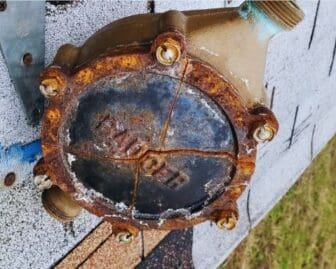Household well assessments and low-interest loans to construct, refurbish or replace household water wells or septic systems
HOUSEHOLD WATER WELL & SEPTIC SYSTEM ASSISTANCE
Private Well Assessments
Communities Unlimited (CU) offers free well assessments in Arkansas, Alabama, Louisiana, Mississippi, Oklahoma, Tennessee and Texas to homeowners. The free well assessment will be conducted in person by a CU Technical Assistance Provider along with additional information to ensure well water safety and reliability. The well owner must be present during the free well assessment and provide the well log if available. If you do not have this information, please let the Technical Assistance Provider know. Technical Assistance Providers can recommend feasible solutions for identified issues and provide assistance to access federal and state funding for well construction and repairs.
Communities Unlimited is the southern regional partner of the Rural Community Assistance Partnership (RCAP).
This program provides trainings and technical assistance for private well owners to help improve water quality and is funded by the EPA through RCAP, Inc.
You can access the downloadable Private Well Assessment Flyer Here

The Technical Assistance Provider will:
- Identify potential threats to your well
- Identify potential sources of well contamination
- Visually inspect your well
- Review well construction
- Evaluate water source

Brett Capps
Source Water Project Manager
(865) 995-8168
brett.capps@communitiesu.org
Household Water Well and Septic System Loans
Communities Unlimited offers low-interest loans to construct, refurbish or replace a septic system.
You can download the program flyer and application HERE.
Program Requirements:
- Residence must be in a rural area, town or community with a population not exceeding 50,000
- Communities Unlimited state target market of Alabama, Arkansas, Louisiana, Mississippi, Oklahoma, Tennessee or Texas
- Midwest Assistance Program state target market of Iowa, Kansas, Minnesota, Missouri, Montana, North Dakota and Wyoming
- Applicants must own and occupy (or be in the process of purchasing) the home being improved
- Gross annual household income must not exceed 60% of the median nonmetropolitan household income for the state
- Must not be suspended or debarred from participation in federal programs




